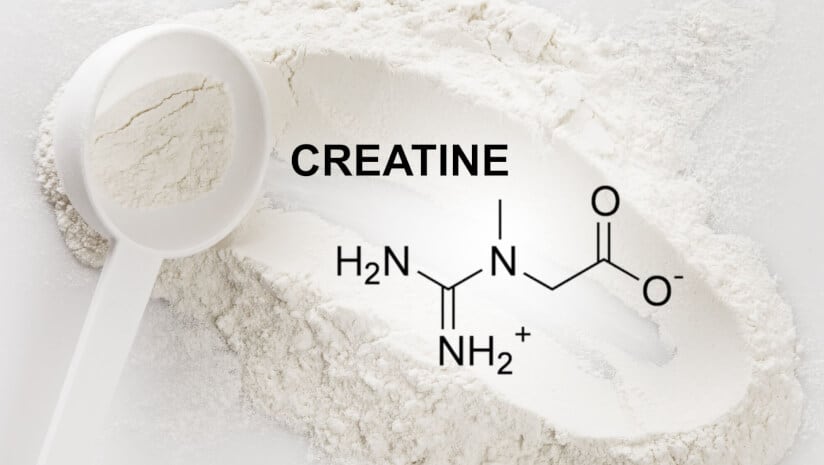According to the study published in Nutrients, a daily maintenance dose of higher than 5g may be necessary to augment long-term lean body mass (LBM) growth.
The findings contrast with previous evidence that indicate the additive effects of creatine monohydrate (CrM) and strength training, said the researchers, led by scientists at the University of New South Wales and institutions in the US and Canada.
“This is likely due to the increase in LBM following acute CrM supplementation,” they wrote.
Context is key
Commenting on social media, Dr. Darren Candow, Director of the Aging Muscle and Bone Health Laboratory at the University of Regina, Canada, and co-author on the new study, said that context is key to understanding the findings from this study.
“Our recent studying showing that low-dose creatine does NOT augment the gains in LEAN BODY MASS during a resistance training program is making the rounds. Unfortunately, the message being portrayed is incorrect,” he stated.
Dr. Candow added that numerous studies show that creatine combined with resistance training does not lead to greater increases in lean body mass compared to resistance training alone, while the majority of studies do show that creatine increases lean body mass.
“When all studies are combined into meta-analyses (which results in higher statistical power), creatine results in about 1.3 kg more lean body mass!” he said. “While this is positive overall, it’s important to note that lean body mass is NOT entirely muscle mass. Lean body mass encompasses other variables such as water, organs and tissue, etc.
“That is why lean body mass should be taken with a grain of salt.”
Dr. Candow stated that creatine likely does increase muscle mass, but the effects are small. It does lead to a plethora of other benefits involving strength, bones and the brain.
“Is creatine worthless?” he asked. “Absolutely NOT (only headlines, click-bait titles, and false interpretations are).”
Benefits of creatine monohydrate
Creatine monohydrate (CrM) is a popular and well-studied supplement that the ISSN supports as safe and effective for supporting health and performance.
Its ergogenic effects may include increasing high-intensity exercise capacity and lean body mass during training.
On a biochemical level, CrM may increase the availability of phosphocreatine (PCr) stored in the muscle. PCr is needed to generate energy in the form of adenosine triphosphate (ATP), and as PCr stores deplete during exercise, the ability to maintain maximum effort declines.
Therefore, creatine supplementation may enhance the quality and volume of strength training, leading to greater gains and improved lean muscle mass.
Dosing protocols may include an initial loading phase of 20–25 g/day for up to a week to saturate the muscle, then a maintenance dose of 2-5 g daily, explained the researchers in their paper in Nutrients. Because creatine uptake involves sodium-dependent transporters, individuals may experience water retention, but evidence of the mechanisms involved in this is uncertain.
Study details
The researchers hypothesized that a seven-day CrM wash-in phase without training would significantly increase LBM measurements. Additionally, they sought to investigate whether the wash-in LBM outcomes impacted changes in LBM following supplementation with a 12-week resistance training program.
The randomized controlled trial involved 63 healthy participants aged 18-50 years. They consumed 5 grams of CrM daily or placebo for 13 weeks. Both groups didn’t exercise in the first week (wash-in phase) and completed three full-body training sessions a week for the remaining 12 weeks.
Results revealed that after the 7-day wash in, the supplement group gained up to 1.79 kg more lean body mass than the control group. Following the wash-in, both groups gained 2 kg after resistance training and there were no differences between them for lean body mass growth. Sex analysis found that only females in the supplement group gained more lean body mass than controls (up to 1.61 kg).
“Thereafter, CrM did not enhance lean body mass growth when combined with resistance training, likely due to its short-term effects on lean body mass measurements,” the researchers wrote, adding that a higher maintenance dose may be necessary to augment growth.
They recommend further research to understand the sex differences and the impact of hydration and various diets.
Source: Nutrients 2025, 17(6), 1081; doi: 10.3390/nu17061081, “The Effect of Creatine Supplementation on Lean Body Mass with and Without Resistance Training”, Authors: I. Desai et al.


